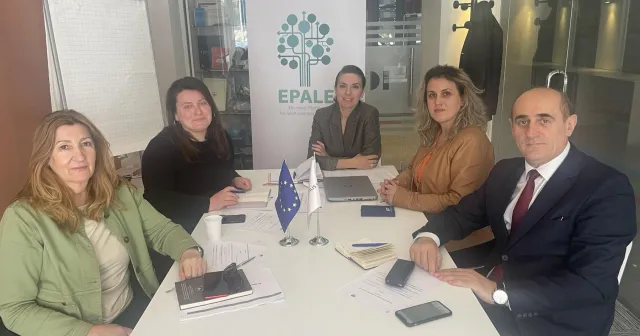Making the rainbow visible in adult education
June is International Pride Month – a time not only for celebration but also for reflection. It reminds us that the work of advancing equality and equity is far from over. When we talk about LGBTQ+ rights, the conversation often focuses on young people, youth work, or school education. But what about adults? What about adult education – a field that is often invisible, yet socially vital?

Adult education isn’t just about updating skills or improving employability. It’s a space where trust is built, where people find a sense of belonging and dignity – especially those who have experienced rejection or invisibility at some point in their lives.
For many LGBTQ+ individuals, educational institutions haven’t felt like safe spaces. They may have faced bullying, belittlement, erasure of their gender identity or sexual orientation – or simply a lack of role models and peer support. Adult education offers a chance to rewrite those experiences. That’s why its content, atmosphere, and accessibility are also questions of equity.
This brings a particular responsibility to educators and decision-makers. They have the power to shape learning environments where everyone feels welcome – not merely tolerated, but truly seen and valued.
Teachers in adult education play a unique role. They don’t just teach subjects; they meet people at turning points in life – starting a new career, recovering, beginning again. In these moments, sensitivity to gender and sexual diversity is essential.
Decision-makers have the chance to shift the system from chance to intention. This applies at both the local and national levels – to policy-makers, school leadership, and funders.
One especially vulnerable yet under-recognized group is older LGBTQ+ people. They belong to a generation that lived part of their lives when being different was a crime or a diagnosis. Many never had a safe educational path – and discrimination has often followed them into the workplace and healthcare settings.
For them, adult education can be more than just a place to learn – it can be the first time they are truly seen as themselves. But this requires awareness from education providers and learning environments that are inclusive and accessible.
Pride is not just parades and parties. It’s a call for equality – and an invitation to pause and ask: How do we educate, for whom do we educate – and whose voices are being heard?
In adult education, the answers to these questions are built daily – through the actions of every teacher and every decision-maker. Diversity is not a problem to solve; it’s a strength to embrace. Pride Month calls on us to make that visible – not just in June, but every single day.
A Call to Action: Let’s Build More Inclusive Adult Education
Teachers – Start here:
• Update your own knowledge to be LGBTQ+ inclusive.
• Take part in training sessions or webinars offered by LGBTQ+ organisations.
• Use diverse and relatable teaching materials. Include examples that reflect different kinds of lives and identities.
• Encourage open discussion and weave diversity into everyday topics – normalizing difference is a powerful form of change.
Decision-makers – Make equity structural:
• Integrate LGBTQ+ perspectives into your institution’s equality and inclusion plans.
• Ensure teachers have access to professional development on LGBTQ+ topics.
• Support lifelong learning for older LGBTQ+ adults by offering accessible and inclusive educational pathways.
Everyone involved – including administrators and leaders:
• Review your school’s communications, registration forms, and facilities to make sure they’re inclusive (e.g., offering gender-neutral options).
• Collaborate with LGBTQ+ organisations.
• Invite LGBTQ+ experts to training days and development sessions.
The author, Anni Karttunen, is a passionate advocate for the LGBTQ+ community. In her work in adult education, she has spent a great deal of time thinking about how to create safe and welcoming learning environments for everyone. Her goal is to cultivate the kind of long, embracing arms that can hold everyone – regardless of faith, nationality, or sexual orientation




